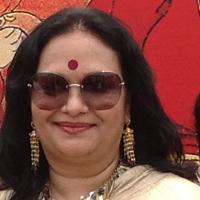China’s Amazing Cultural Impact


In the last decade, China has emerged as a major cultural power. Its presence is felt in every major or minor festival across the globe. There is no festival in the world where Chinese arts and artistes in performance are not showcased. The barriers of language, culture-specific performances of opera, music or dances, which the West would ordinarily term ‘ethnic’ and keep out of mainstream performance venues, no longer hold true where China is concerned. It is amazing how, with strategic planning, soft outreach and a huge budget, China has overcome hindrances to the consumption of culture and the arts.
China’s traditional cultureis an attraction to the West, especially with its rapid rise as a major economic power. China quickly understood that economic rise is not sustainable without expanding cultural footprints; and, without becoming more “acceptable” by increasing its reach on the world stage. China’s engagement with several countries, through bilateral and festival cooperation, has drawn widespread attention to Chinese arts and artistes and has led to its rise also as a “super soft power.”
Several international festivals are being organized in china’s provinces. Most of these started many years ago as regional affairs. With more funds available and a clear directive to intensify cultural engagements with a global community of festival directors, artistes, NGOs and cultural arms of foreign governments – with the single-point agenda of placing China on the world map – these regional festivals have now transformed into international events where artistes from around the world are invited to perform.
My engagement with China and its artistes began in 2012, when I was invited to the China Shanghai International Festival Forum, the flagship event of China’s global cultural festivals.
My meeting with directors of these international festivals in different regions led to my dance group – Prasiddha Repertory – being invited twice to perform in Chengdu in Sichuan Province and Zhangjiajie in Hunan Province. While the International Festival of Intangible Cultural Heritage (IFICH) in Chengdu, organised in collaboration with UNESCO, had 112 participating countries, the Zhangjiajie Country Music Festival saw 27 countries, including the U.S., South Africa, Australia, Italy, Russia, and Brazil. The events were staged in the area’s world heritage sites. The opening ceremony was in the spectacular Huanglong Ecology Cave where all the participating countries performed. After the inaugural performance, every country had a generous schedule for maximising their exposure to the region for Chinese audiences.
Prasiddha Repertory’s performances were organized in picturesque places around the Baofeng Lake, Laomowan, Tianzi Mountain, Tianmen Mountain (where the Hollywood movie Avatar was shot), and Xibu Avenue. Apart from the fact that it was an unforgettable experience, our hosts took care of everything – including stay, food preferences, technical needs and comfort of the groups. So much so, that by the time we left, all of us were in love with China. The extent to which the Chinese can strategize to deliver desired outcomes, as the gigantic IFICH demonstrated, is impressive.
Chengdu, with UNESCO collaboration, has developed a 100-acre park dedicated to intangible cultural heritage (ICH). I haven’t come across any other place in the world that has such a vast area devoted to multiple museums, theatres, and theme parks, as well as audio-visual shows, sculptures, paintings, musical instruments, printed material, and the like dedicated to the country’s cultural heritage. The ICH Park was the venue for the opening ceremony of the festival, which brought together 112 countries and an audience of 25,000.
For me, Chengdu was a surprise package that unfolded the many Chinese delights on offer. I was told that culturally, Chengdu is China’s “most intense city.” I understood why I saw the entire city wearing a festive look. Every road, lamp post, and sidewalk had been utilised for branding and promotion of the festival. Huge billboards sported an interesting tag line: ‘Everyone Be a Cultural Transmitter.’ With hundreds of volunteers wearing T-shirts sporting the same message, there seemed to be, literally, a cultural explosion.
To top it, the roads were closed to general traffic for providing security to the artistes from 112 countries. The security which we were accorded was comparable to that of high government functionaries. Police cars with lights flashing escorted us artistes to the venues, making us feel like powerful celebrities.
During the rest of our tour, we were greeted by hundreds of enthusiastic people lined up on either side of the long roads, waving Indian flags and taking pictures as we went about our performances for a week in Gaoxin District, Pixian Town, Dujiangyan Tourist Resort, Jintang City, and Bailu Hill Resort in Pengzhou. All were beautiful, picturesque venues, but I would like to specially mention Dujiangyan. The magnificent stage set against the backdrop of a huge, ancient shrine with the power irrigation channel across the Min River lit up in a fantastic way was stunning. My dance group finished its performance to deafening applause from an audience of 15,000. The climax was the closing dinner, which gave all the performers a glimpse of Chinese opera and a taste of delicious food from all continents.
More recently, in October 2015, I was invited to the China Shanghai International Festival Forum for the purpose of building a network of festivals from countries along the Silk Road.
Ms. Catherine Wang, the culture specialist, and Mr. Liu Wenguo, artistic director of China Shanghai Festival, had invited directors of festivals from 60 Asian and European countries, which were on the ancient ‘Silk Road.’
China is a stellar example of what can be achieved through culture and cultural diplomacy – a far cry from the times of the “cultural revolution.” It has changed the world’s perception of China and Chinese culture.
The author is an Indian classical dancer and culture specialist, is the founder and director of Delhi International Arts Festival.
